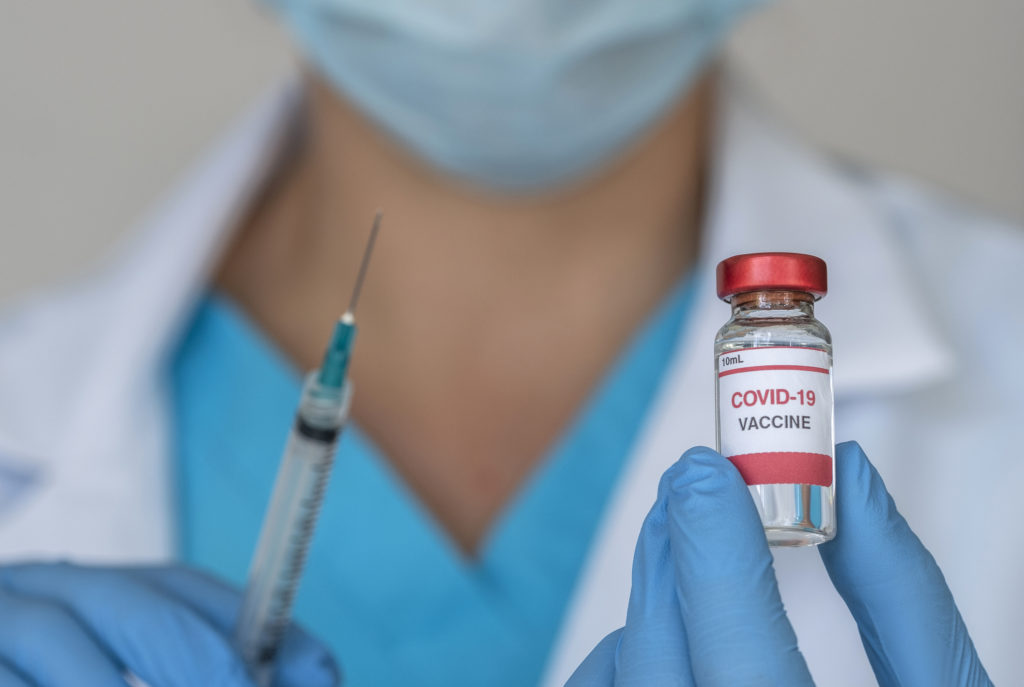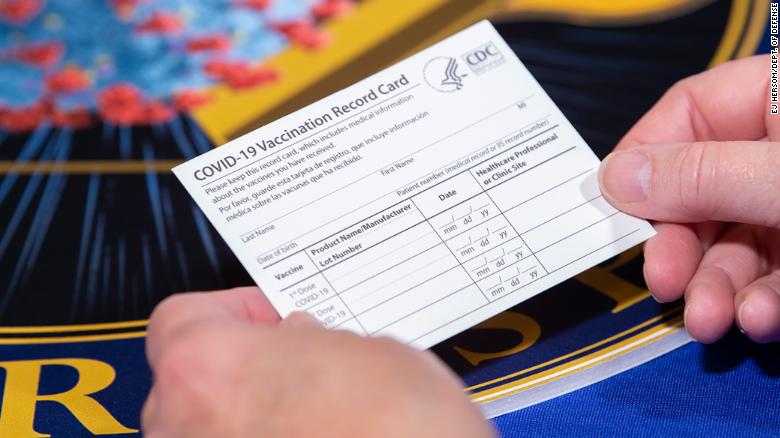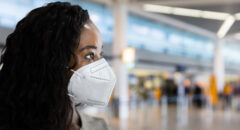
Dr. Kelly Moore, associate director of the Immunization Action Coalition, which is supporting frontline workers who will administer Covid-19 vaccinations, states that these "COVID cards" are one of the simplest ways of keeping track of vaccine shots and immunity.
"Everyone will be issued a written card that they can put in their wallet that will tell them what they had and when their next dose is due," Moore said. "Let's do the simple, easy thing first. Everyone's going to get that."
If you remember, when we first reported on the number of clinical trials and vaccines that are showing signs of working, most of them are based on a two-dose system. Whereas, the person gets one dose of the vaccine and then comes back, say two weeks later, to get the second dose. After two doses, it's done.
Vaccination clinics will also be reporting to their state immunization registries what vaccine was given, so that, for example, an entity could run a query if it didn't know where a patient got a first dose.
It's very important to note that every dose administered will be reported to the US Centers for Disease Control and Prevention, said Claire Hannan, executive director of the Association of Immunization Managers.

While it's still unclear if such a database would include a record of everyone immunized and how that information would be used in the future.
It is clear that some businesses will use this card for their employees and even patrons.
One such company is Australia’s flagship carrier, Quantas Airlines.
Quantas became the first major airline to state its intent to require international passengers to have received a Covid-19 vaccine as a condition of traveling.
Their CEO, Alan Joyce, said the airline will be changing its terms and conditions to make vaccination a “necessity” for anyone hoping to travel internationally, with domestic travel dependent on local conditions.
As more governments turn to mandatory COVID-19 testing for travelers in place of mandatory 14-day quarantines after arrival, other of the world’s top airlines are developing a digital health passport that will collect and standardize coronavirus-related passenger data for border crossings and could jump-start international travel once it is widely used.
Eventually, the current proof of negative test results prior to travel could be supplanted by proof of vaccination.
The International Air Transport Association (IATA), a trade group of the world’s airlines, said this week that its new IATA Travel Pass is in the final stage of development. “IATA Travel Pass will manage and verify the secure flow of necessary testing or vaccine information among governments, airlines, laboratories and travelers,” the organization said.
IATA said it expects to start pilot-testing its Travel Pass for transborder trips later this year with International Airlines Group (parent of British Airways, Iberia and others) and to launch it formally in the first quarter of 2021 for Apple devices and in April for Android. For more details on how it will work, click here.
We’ve already seen some individual airline efforts to incorporate COVID testing into their requirements for international travelers.
A United flight last week from Newark to London was the airline’s first that required all travelers to test negative for the coronavirus.
That was achieved by subjecting all passengers to rapid testing at the airport (at no charge) before boarding the aircraft.
Both Pfizer and Moderna have submitted their request to get emergency rapid authorization of the vaccine.
If granted, the vaccines' first shipments could happen December 15 and 22, respectively, according to a document from the federal government's Operation Warp Speed.
Initial supplies in the United States will be limited, and the wider population won't have access to vaccines until months into 2021.
A CDC panel recommended Tuesday that health care and long-term care workers get inoculated first.








